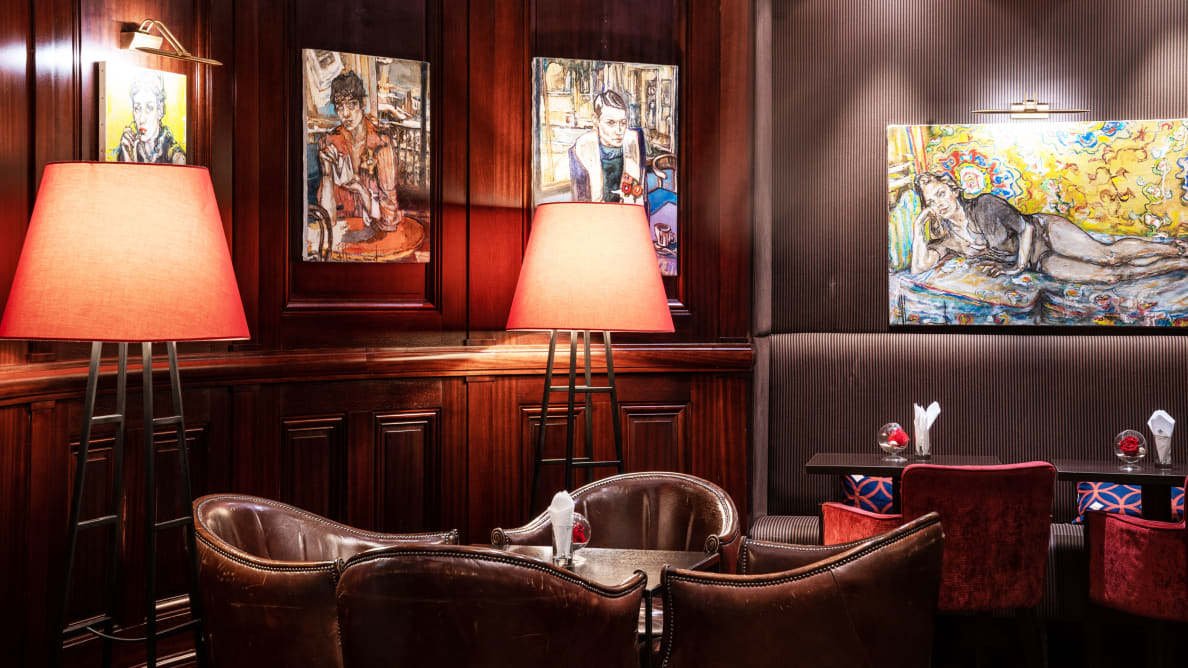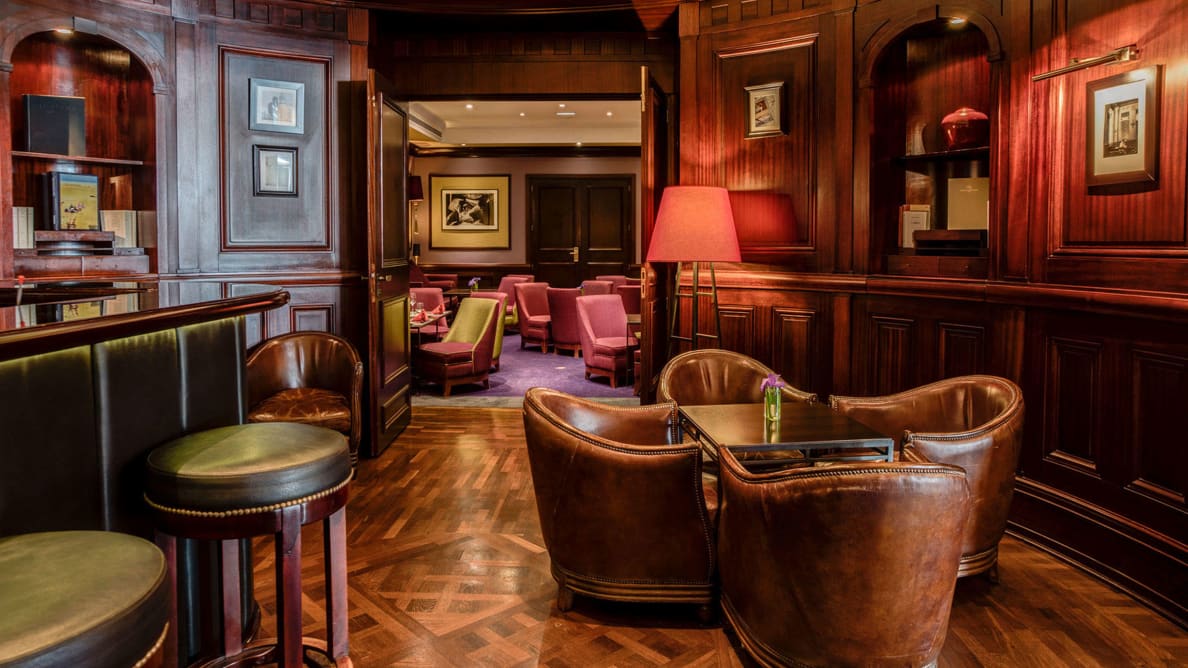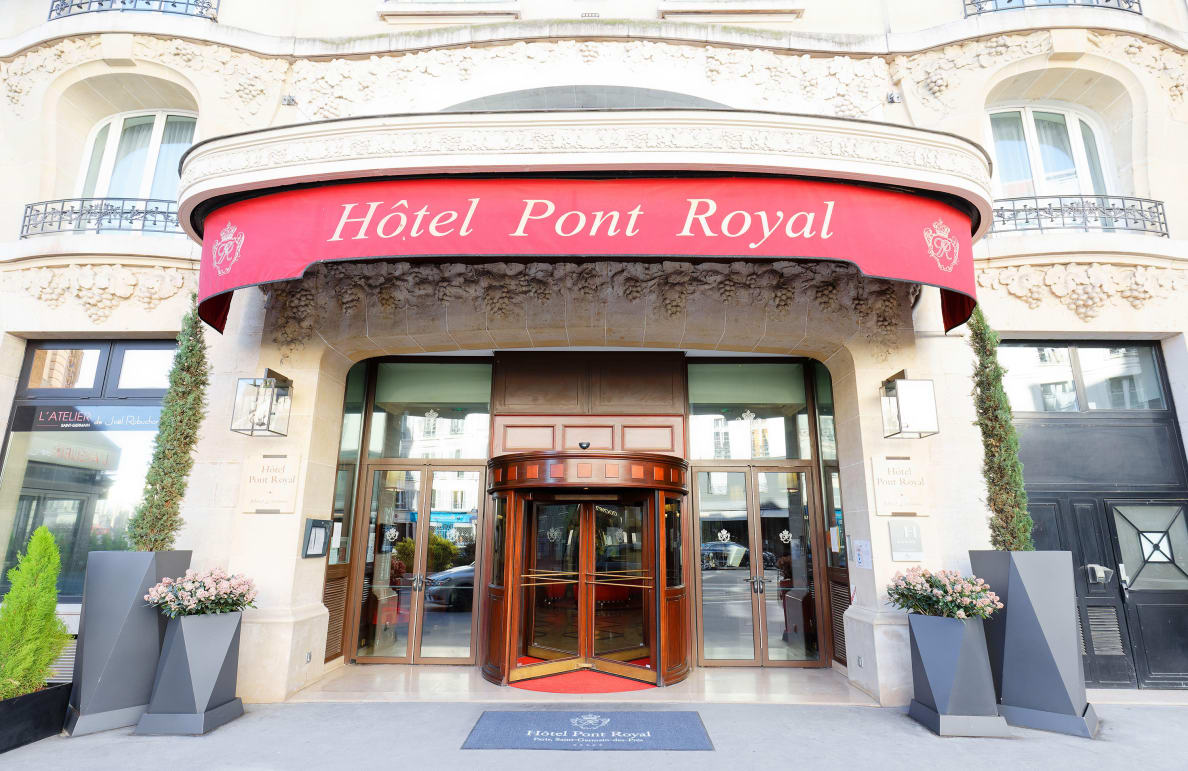PARIS—The very small Left Lender bar exactly where Zelda Fitzgerald swilled some of the Metropolis of Light’s initial cocktails, Henry Miller drank through composing breaks, and Simone de Beauvoir and Truman Capote lobbed blistering insults at each and every other—the latter likened by the previous to a little white mushroom—is quick to overlook.
For starters, it is situated in the Hôtel Pont Royal, a five-star establishment off the Rue du Bac which is devoid of the severe Rococo thrives or disco-coloured supercars out front that are conventional markers of Paris luxurious inns.
“Smart but not flashy,” is how the South African actor Neville Philips explained it in his memoir.
Even the Rue de Montalembert on which the Pont Royal sits, is limited and unassuming. In addition to the Pont Royal and its connected cafe (the Michelin-starred Atelier de Joël Robuchon), the road houses a in the same way inconspicuous upmarket hotel, as effectively as a musical instrument shop specializing in bespoke oboes and English horns.
The discreet spot appears to be fitting for a bar in which 20th-century literary luminaries not only congregated, but also went to hide out. But far more on that later on.
Capote explained the Pont Royal’s watering gap as “a leathery tiny basement bar,” evoking an picture of a very small underground haunt filled with younger, broke scribes and pungent clouds of nicotine. Currently, it is named Bar Signature, and I was disappointed to master that it was moved from its cellar-level site during an extensive renovation a few a long time back. A cosy physical fitness middle has taken its position in the basement, even though the bar sits just off the floor ground in the vicinity of the foyer.
Even so, there’s an echo of a Jazz Age-period speakeasy in the mahogany panels, classic-model newspaper rack, and slightly weathered leather-based chairs, as effectively as a whiff of the iconic Hemingway Bar across the river at the Ritz. That is, if the bar experienced a less preferred, a lot less glitzy small sister. It is the kind of area you would want to settle in for a very low-crucial happy hour, or a tea (or anything more powerful) during a biting January afternoon.

Courtesy of Resort Pont Royal
Speaking of cocktails, when the bar opened in the 1920s it was among the to start with in the French cash to provide blended drinks—an act that was viewed as fairly sacrilegious in early 20th-century France. Whilst Parisians at first averted the joint, the American and British expatriate writers had been intrigued, and it was not lengthy in advance of the Pont Royal’s minimal bar turned a collecting area of would-be and set up literary famous people.
F. Scott and Zelda Fitzgerald were being regulars together with Ernest Hemingway, and Radclyffe Corridor wrote her trailblazing 1928 lesbian novel, The Effectively of Loneliness, though holed up in a space upstairs. According to the Pont Royal’s web page, Picasso and Dali crossed paths at the bar, “but acted as if they did not understand just one a different.” Delicious nevertheless this bit of trivia may perhaps be, I was sad to say unable to validate it.
The small bar’s rich history doesn’t finish with les années folles both. Even after the Fitzgeralds experienced left Paris and the Hemingways experienced decamped for Critical West, it remained a literary epicenter between the French and worldwide intelligentsia. During the early ’30s, for occasion, the infamous enfant terrible of American letters, Henry Miller, would usually come in for drinks among drafts of Tropic of Cancer and Tropic of Capricorn.
Even the horrors of World War II didn’t quash the lodge and its bar, while they did considerably dampen the occasion.
“The concierge at the Pont-Royal on the rue du Bac wore tails, but the sleeves ended up unraveling, and his chin often confirmed little nicks from owning shaved with cold water,” the famed playwright Arthur Miller wrote in his memoir, recalling a dreary publish-war stay in the resort, exactly where a “hungry-searching, garishly acquired-up” young prostitute stationed in the foyer eyed him with “a philosopher’s top-quality curiosity.”
The brass bars throughout the revolving doors ended up missing “like a ton of plumbing and metallic fittings stolen by the Germans in the previous determined months,” and every working day, the resort concierge with the frayed sleeves had to run across town and back again to feed his rabbits.
“Rabbits,” Miller additional, “were conserving a large amount of people.”
Even with the bleakness of all those early article-war days, the town (and the lodge) bounced again, and the late ’40s and ’50s observed a new wave of literary lions acquire a seat at the Pont Royal’s underground bar, such as Jacques Prévert, Arthur Koestler, Françoise Sagan, and Aldous Huxley.

Courtesy of Hotel Pont Royal
Among the most renowned regulars ended up thinker electrical power couple Sartre and de Beauvoir, who at first arrived to search for refuge from the overzealous enthusiasts who had been hounding them at the close by Café de Flore. It was there that they crossed paths with Capote, who was residing at the Pont Royal in “a little area below the eaves.” The face didn’t go very well.
Unimpressed with Capote’s first e book, de Beauvoir reportedly appreciated creating jokes at the young writer’s expense. In accordance to British historian Antony Beevor, de Beauvoir “compared the small American in his more than-significant white jersey and pale-blue velvet trousers, to a ‘white mushroom’ and laughed with the barmen who pointed out that his very first name was that of the President of the United States, while his surname was the French slang for condom.”
Capote took revenge in real literary vogue by demolishing equally Beauvoir and Sartre in a scathing passage of his unpublished novel Answered Prayers:
“Wall-eyed, pipe-sucking, pasty-hued Sartre and his spinsterish moll, Beauvoir, were being normally propped in a corner [of the bar] like an abandoned pair of ventriloquist’s dolls.”
Ouch.
He was gentler with Sartre’s close friend and up to date Albert Camus, on the other hand, describing the celebrated existentialist as “reedy, diffident in a razory way, a guy with crisp brown hair, eyes liquid with everyday living, and a troubled, perpetually listening expression.”

The entrance to Hotel Pont Royal, located in the Saint Germain-des-Pres quarter of Paris.
Petr Kovalenkov/Alamy Stock Image
The bar was also a chosen haunt of famous author James Baldwin, who fled to Paris to escape the rampant racism in the U.S., and afterwards identified fame in the French cash. Gabriel García Márquez lived at the lodge and also hung out at the bar, as did Rosamond Bernier, the journalist and trend aficionado, who launched the Paris-centered present-day arts magazine, L’Oeil.
“The bar was a congenial conference position for both of those artists and writers because the good publishing residence of Gallimard was just down the street,” Bernier recalled in an interview a several a long time right before her demise in 2016.
“A number of Gallimard authors whom I knew would satisfy in the bar. I met Georges [her husband and co-founder of L’Oeil] with Jacques Lacan.”
Gallimard is in fact a number of minutes’ stroll from the hotel, just as it was in Bernier’s day, and rumor has it that editors and authors have taken care of the custom of congregating at the bar for drinks and organization banter.
But Zahia Challal, the Pont Royal’s income supervisor, advised me that a usual repeat client is a common at the connected cafe who pops into the bar for a pre-evening meal drink. Travelers from the U.S. and Europe, she explained, are significantly much more typical than French literati.
“Publishing homes have shut, and the publishing landscape has improved,” she stated. “Both in Paris and close to the world.”
Certainly, through my go to I uncovered myself seated in entrance of a small desk of more mature American vacationers. I nursed my way too-sweet elderberry cocktail and leafed via my notes, only half-listening to their dialogue that spanned every thing from the Elon Musk Twitter purchase-out to Netflix’s latest financial gain losses to (intriguingly) Rasputin.
Dimitri Olin, who reminded me of a young, Japanese European Christian Bale, has been the barman at Signature for about six many years. He verified that the bar experienced been moved from the basement decades back, even though he could not give me an precise date.
“They brought the chairs up from the original bar,” he stated, and I felt at at the time thrilled and a little deflated that the only issue linking the bar’s 21st century’s incarnation with the just one Camus and his cronies realized was the cushions for our hindquarters.
When I requested him about the regular clientele, Olin echoed the sale’s manager’s earlier remarks about overseas tourists comprising the bulk of their patrons. As if proving his stage, a burly, sartorially challenged American in dishevelled khaki shorts lumbered in and inquired about a consume buy. I returned to my desk.
My spouse joined me a brief time afterwards, and graciously agreed to swap my treacly concoction with his much more tart, Passoã-based 1. He listened patiently as I regaled him with tales of the bar’s basement heyday, ultimately agreeing that the astounding record and total coziness designed the spot value the metro journey throughout city.
We sampled a distinct vodka and Passoã-centered cocktail identified as Enthusiasm Sour, and I went to check out out the lounge, where I was pleased to uncover a great deal of textbooks, as properly as a pine-inexperienced porcelain wood stove. A person in a leather-based jacket appeared to be dozing in a corner chair.
The writers may well have moved on, but their legacy (and their bar chairs) remains. As does a particular discreet elegance that French stars, literary or or else, would respect.
Despite the bar’s lengthy record and dazzling roster of literary legends, it has somehow managed to retain the exact subdued, hiding-in-simple-sight quality that initially attracted the likes of de Beauvoir who just desired to sip her cocktail in peace.
And in today’s age of selfies and unrepentant flashiness, that is undoubtedly well worth increasing a glass to.
